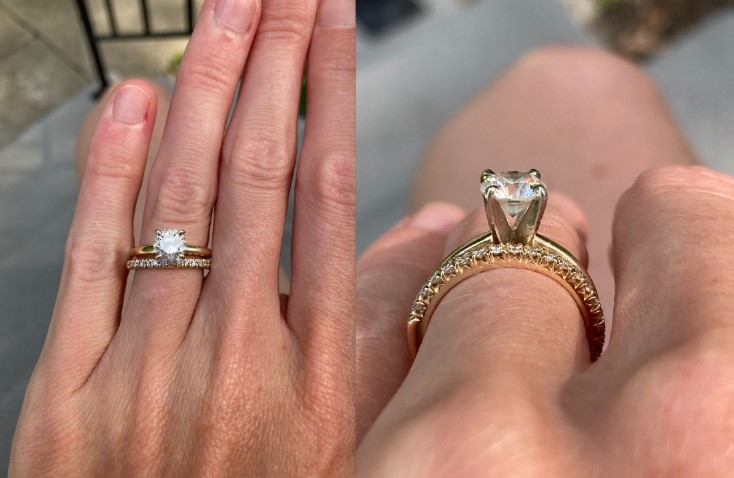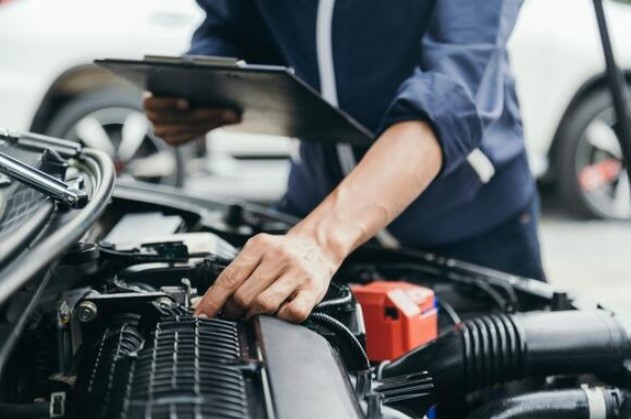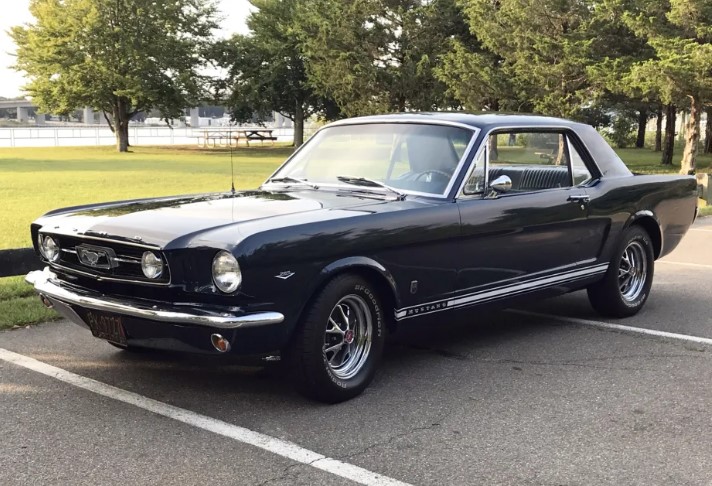Advertiser Disclosure
If you have a car warranty, it’s advised that you keep up with routine maintenance so it doesn’t affect your coverage. While you could take your vehicle to a dealership’s service department or a mechanic shop for repairs, you may also be wondering, “Can I service my own car and keep the warranty?”
In this article, we’ll explain how much it costs to service your own vehicle, how best to take care of your own car under warranty, and whether it’s worth performing repairs yourself. We’ll also recommend some of the best extended car warranty companies so you’ll know how the market works.
In this article:
Car Servicing Overview
To purchase a vehicle warranty, you’ll be required to have your car serviced regularly. Your service contract, owner’s manual, or manufacturer’s warranty documents will explain in detail which guidelines you need to follow for routine maintenance. For most cars, regular vehicle maintenance includes the following:
Routine oil changes, fluid replacements, and tire rotations can help ensure your vehicle is in the best shape possible. Oil changes and tire rotations tend to have the same maintenance schedule for all vehicles, while fluid changes depend on the component type and your car’s mileage.
Oil
According to AAA, motor oil should be changed between intervals of 3,000 and 7,500 miles (or every 3 to 6 months) depending on the type of engine you have. Oil changes are probably the most important aspect of car servicing, as going without changing the oil can result in complete engine failure.
Fluid
These vehicle fluids need to be checked, flushed, and changed every so often:
- Coolant (radiator)
- Transmission
- Brakes
- Power steering
- Windshield wiper fluid
The rule of thumb for power steering differs depending on your vehicle type, but it should be every few months for windshield wiper fluid, at least every 2 years for coolant and brake fluid (according to Cars.com), and after you reach 50,000 miles for transmission fluid (according to the Boston Globe).
Tires
Edmunds says most tires need to be replaced at least every 6 years. U.S. News suggests getting your tires rotated every 7,500 miles or 6 months to even out wear and tear and to make them last much longer. This service is usually on the same schedule as oil changes.
Your brake pads, windshield wiper blades, and car light bulbs and circuits will need to be replaced regularly. Depending on your vehicle and bulb type, your headlight system can last for years at a time.
Brake pads and rotors
You should replace brake pads every 20,000 to 50,000 miles, according to YourMechanic. Automakers such as Ford and Toyota recommend replacing rotors every 30,000 to 70,000 miles. With most full brake services, your pads and rotors will be replaced at the same time.
Windshield wipers
Wiper blades often need to be replaced every 6 to 12 months or as soon as you notice any squeaking noises, streaking on the windshield, or cracked and damaged blades, according to AutoZone.
Lights, bulbs, and fuses
Car bulbs will need to be inspected for replacement every year, but they can last longer depending on the bulb type. Fuses will last an average of 10 years, according to YourMechanic, and besides aging, will usually only wear out due to electrical problems or component failure.
Regular or excessive wear and tear on your car can result in high repair costs, and you may need to replace weak or broken windshield glass and rustproof your vehicle every few years.
Exterior and interior cosmetic damage
Normal wear and tear such as small scratches, dents, and chips on the exterior and tears on the interior can usually be fixed at little cost. Excessive wear and tear such as burns, missing and broken parts, or too much exterior damage will be much more expensive to repair.
Glass
You should get your windshield replaced if it has any large, severe cracks or chips because this can impair driving and affect the quality of your wiper blades.
Rust and corrosion
Rustproofing manufacturer Noxudol recommends rustproofing your car every 1 to 2 years to prevent any corrosion to your car’s undercarriage. This can be done either on your own or in a mechanic shop, and there are often aftermarket warranty providers that offer corrosion warranty repair coverage and add-ons.
Can You Service Your Own Car And Keep The Warranty?
You can service your own vehicle without affecting the warranty on it. Under the Magnuson-Moss Warranty Act, it is against federal law for car dealers or warranty providers to deny a claim or void a warranty because vehicle maintenance was performed by the owner.
The only way you can have coverage denied or your warranty voided from servicing your own car is if you perform the service incorrectly. Contact either a representative from your car manufacturer or a local repair shop if you’re unsure of which oils, fluids, or lubricants to use.
To keep the vehicle warranty intact, you’ll need to make sure you’re following the service guidelines and performing car maintenance on schedule. If you neglect routine maintenance or fail to perform services such as oil changes or fuse replacement, your warranty claim may be denied and your warranty could be voided for pricier parts such as your car’s powertrain.
How Much Does It Cost To Service Your Own Car?
If you’re wondering, “Can I service my own car and keep the warranty?” you may be hoping to save some money. The cost of car maintenance depends on a number of factors, such as:
- Vehicle year, make, and model
- Mileage on your odometer
- Amount of exterior/interior wear and tear
- Type of aftermarket parts
- Whether you own or lease a new car or used car
- Whether there are covered repairs under your warranty
When servicing your own car, you might want to know these average car maintenance costs for common vehicle repairs and replacements. Here are some estimates from RepairPal:
| Type of Repair or Replacement | Average Cost |
|---|---|
| Oil change | $87 to $90 |
| Transmission fluid change | $92 |
| Wheel replacement | $655 |
| Brake rotor replacement | $168 to $233 |
| Windshield wiper blades | $35 to $52 |
| Headlight bulb replacement | $69 to $79 |
Is It Worth Servicing Your Own Car?
Doing your own regular maintenance is a great way to save time and money, but you have to make sure you’re using the right fluids and parts when doing so. If not, you could damage your vehicle and be at fault for mechanical issues or failures in the future.
| Pros of Servicing Your Own Car | Cons of Servicing Your Own Car |
|---|---|
| Save money on parts and labor costs | Risk of damaging your car or harming yourself |
| Gain familiarity with your car’s parts | Risk of misdiagnosing mechanical problems |
| Have more flexibility in getting the work done | Could void your warranty |
While some drivers may enjoy servicing their own cars, there are risks involved. It’s critical that you use the right tools and diagnose your issue correctly. Otherwise, you could cause damage that voids your warranty.
How Can I Service My Own Car Under Warranty?
If you want to service your own vehicle, research its standard repair needs, how often to repair and replace car parts, and the average costs involved. Below are some tips on how to properly service your own car, even under warranty:
- Follow the car’s maintenance schedule: You can usually find it in the owner’s manual. Always know when tasks such as changing the engine oil, checking fluids and belts, and performing tuneups need to be done.
- Learn what to check during oil changes: Certain components need to be serviced or inspected between regularly scheduled oil changes, so look at the air filter, exhaust system, brakes, fluids, radiator, and battery.
- Get the right tools and parts: Basic tools and materials include car jacks, oil and air filters, wrenches, screwdrivers, and pressure gauges. Thoroughly do your research to ensure repairs are done with the correct equipment.
- Keep a paper trail: Maintain records for each service as proof to keep the warranty valid for future claims. You’ll need to record the date, mileage at the time of service, type of service performed, and receipts for parts and fluid purchases.
Best Warranty Companies For Car Maintenance
Some third-party warranty companies provide maintenance coverage with certain vehicle protection plans or offer low-cost warranties that make DIY automotive maintenance more affordable. The four companies below offer extensive protection, discounts on maintenance, and flexible monthly payment plans. We’ve reviewed each of these providers and have given a rundown of them below:
As one of the nation’s leading direct providers of extended auto warranty plans, Endurance offers affordable and high-quality coverage choices. It’s a particularly appealing option for those hoping to cover their maintenance needs, as the EnduranceAdvantageTM plan takes care of filter and oil changes, tire rotations, and the replacement of brake pads and wiper blades.
Read our full Endurance warranty review for more on the provider.
Protect My Car’s Ambassador Maintenance Plans cover oil changes, tire rotations, and other routine maintenance needs for used cars with high mileage. The company will also pay for either 50 or 75 percent of various car repairs, regardless of your vehicle’s age or reliability. Protect My Car’s offerings for older vehicles are hard to top, and the company’s generous coverage limits make it an excellent choice.
See our Protect My Car review for additional details.
While Olive doesn’t offer vehicle maintenance plans, the provider’s affordable prices for extended warranties make it easy to pay for maintenance needs yourself while letting the company cover larger issues with your vehicle. Olive is known for its competitive rates, with drivers saving considerable money by choosing its plans.
Find more about this extended warranty provider in our complete Olive car warranty review.
With the Platinum Plus plan from ForeverCar, drivers receive the company’s most comprehensive warranty coverage plan along with certain maintenance benefits. Wear-and-tear items such as brake pads, windshield wiper blades, lightbulbs, and fuses are fully covered. Most warranty plans exclude these items, so ForeverCar may be a good option if you don’t want to deal with your car’s wear-and-tear parts.
Get additional information by reading our comprehensive ForeverCar review.
Methodology
In an effort to provide accurate and unbiased information to consumers, our expert review team collects data from dozens of extended auto warranty companies to formulate rankings of the best providers. Companies receive a score in each of the following categories, as well as an overall weighted score out of 5.0 stars.
- Industry Standing: Warranty providers with a history of strong business practices and endorsements from experts receive the highest scores in this category.
- Coverage: This rating is based on types of extended warranty plans available, coverage terms, and added benefits like roadside assistance.
- Cost: Our research team reviews sample quotes for a variety of plans and vehicles. Companies with lower prices per year of coverage receive the best scores.
- Transparency: This score takes into account contract transparency and the availability of a money-back guarantee.
- Customer Service: We comb through customer reviews and perform our own shopper analysis to get a sense of the responsiveness and helpfulness of each warranty company.







More Stories
Essential Auto Repair Services Every Car Owner Should Know
Missouri couple left waiting days to get car back from mechanic
Diagnostic Network Launches New Module Swap System to Enhance Reprogramming Knowledge Among Members